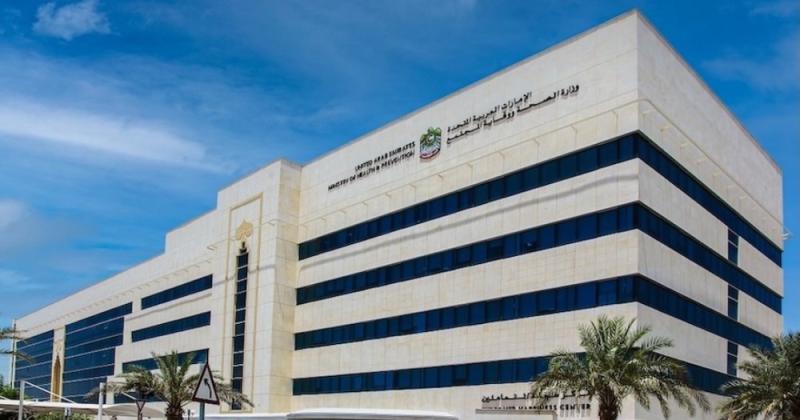
The United Arab Emirates has taken a pioneering leap in preventive healthcare with the launch of a comprehensive nationwide genetic screening program, aimed at identifying individuals at risk of developing chronic diseases before symptoms even appear. This groundbreaking initiative is part of the country’s long-term strategy to shift from reactive treatment to proactive wellness, reducing the national burden of diseases like diabetes, cardiovascular conditions, and cancer.
🔬 A Vision Rooted in Precision Medicine
In line with the UAE Vision 2031 and its overarching National Health Strategy, the Ministry of Health and Prevention (MoHAP), in collaboration with local health authorities, has unveiled a genetic screening initiative that leverages cutting-edge genomics and AI technologies. The program is designed to sequence the genomes of hundreds of thousands of residents, building a national genetic database that will serve as the backbone of precision medicine in the Emirates.
The initiative is being rolled out in phases, starting with voluntary participants from key demographics, including Emirati citizens, long-term residents, and individuals with family histories of chronic or hereditary conditions. Over time, it will expand into a routine component of primary care and health checkups.
🧬 Why Genetic Screening Matters in Today’s Healthcare Landscape
Genetic screening allows healthcare providers to identify genetic predispositions to chronic diseases even before the onset of symptoms. By detecting mutations in genes linked to conditions like Type 2 diabetes, high blood pressure, certain cancers, and rare inherited disorders, physicians can offer early lifestyle guidance, monitoring, and tailored treatments.
In a region where non-communicable diseases account for over 77% of all deaths, according to the World Health Organization (WHO), this shift toward predictive and personalized healthcare is both urgent and transformative.
Dr. Amina Al Mehairi, Director of the UAE National Genomics Office, stated:
“This program marks a turning point in how we approach chronic disease management. Rather than wait for illness to develop, we are now giving patients the power to prevent or delay it.”
🧠 How the Program Works
Participants in the program will undergo saliva or blood-based genetic tests. The collected DNA samples will be analyzed in certified national labs equipped with next-generation sequencing (NGS) technology. The results will be integrated into secure digital health records, accessible to both the individual and their authorized physicians through the UAE’s robust health information exchange system.
Each participant will receive a personalized risk report, including:
- Genetic markers for chronic diseases
- Pharmacogenomics insights (how genes affect drug response)
- Carrier status for hereditary disorders
- Lifestyle and diet recommendations tailored to their genetic profile
Importantly, the process is non-invasive, confidential, and fully compliant with UAE data protection laws, ensuring that genetic information is not misused or shared without explicit consent.
📊 National Health Impact and Goals
The UAE government expects this program to yield long-term economic and public health dividends. Some of the program’s projected outcomes include:
- Early Intervention: Individuals with high-risk profiles can begin preventive therapies earlier.
- Cost Savings: Reducing the economic burden on the healthcare system by minimizing late-stage treatments.
- Research Advancements: Creating a national biobank for scientific research and innovation.
- Improved Population Health Metrics: Decreasing the prevalence of chronic illness over the next decade.
The program will also play a vital role in family planning, helping couples understand their carrier status for hereditary conditions and make informed reproductive decisions.
🤖 AI and Big Data: Powering Predictive Healthcare
A key differentiator of the UAE’s genetic screening program is its integration with artificial intelligence and machine learning systems. As data accumulates, AI algorithms will continuously analyze trends, predict population-level health risks, and even flag early warning signals for potential disease outbreaks.
This vast pool of anonymized genetic and health data will serve as a national resource—fueling breakthroughs in drug development, public health policies, and AI-driven diagnostics.
“The convergence of genetics and machine learning will redefine the future of medicine,” said Dr. Khalid Al Jaber, Head of Innovation at Dubai Health Authority (DHA). “We’re no longer treating averages—we’re treating individuals with precision.”
👥 Public Reception and Ethical Considerations
Initial public response to the program has been overwhelmingly positive, especially among tech-savvy young professionals and health-conscious families. However, health authorities are taking a proactive stance on addressing ethical concerns, including:
- Ensuring informed consent
- Preventing genetic discrimination
- Offering genetic counseling alongside testing
- Promoting genetic literacy among the population
To support this, DHA and MoHAP have launched awareness campaigns across schools, universities, mosques, and media outlets, explaining the benefits and safeguards of genetic testing.
🌍 Positioning the UAE as a Genomics Leader in the Region
With this initiative, the UAE joins a select group of countries—including the U.S., UK, and Singapore—that have made population-scale genomics a cornerstone of national healthcare policy. The Emirati program stands out for its integration across public and private health sectors, multilingual accessibility, and its ambition to be inclusive of residents of all backgrounds.
As Dubai and Abu Dhabi continue to evolve into global medical hubs, the emphasis on innovative, data-driven healthcare cements the UAE’s reputation as a forward-thinking leader in the Middle East.
🔮 Looking Ahead: A Future of Personalized Medicine
The long-term vision behind the nationwide genetic screening program is to build a future where disease is not just treated, but prevented altogether. With the right infrastructure, education, and ethical frameworks, the UAE’s genetic revolution could redefine healthcare for generations to come.
In the words of H.E. Abdulrahman Al Owais, UAE Minister of Health:
“This is not just a healthcare project—it’s a national movement. One that will empower every citizen and resident with knowledge about their own biology, and the tools to protect their health with foresight.”




